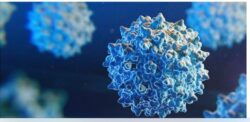How are genetic disorders identified?
“To know what causes genetic problems, first we need to understand how our genes and DNA work.” Most of the DNA in your genes gives your body the instructions it needs to make proteins. These proteins control how your cells grow, work, and stay healthy.
Sometimes, a change (called a mutation) happens in the DNA. This change can affect the instructions for making proteins. Because of this, your body might not make enough protein, or the protein might not work the right way.
To understand why some people have genetic disorders, it helps to know a little about genes and DNA. Your genes are like instruction books that tell your body how to grow and work. Most of these instructions help your body make proteins.
Proteins are very important. They help your cells stay healthy and do their jobs the right way.
Sometimes, a small change happens in the genes. This is called a mutation. It can cause your body to make the wrong protein, not enough of it, or none at all. This can lead to health problems.
To understand why some people have genetic disorders, it helps to know a little about genes and DNA. Your genes are like instruction books that tell your body how to grow and work. Most of these instructions help your body make proteins.
Proteins are very important. They help your cells stay healthy and do their jobs the right way.
Sometimes, a small change happens in the genes. This a mutation. It can cause your body to make the wrong protein, not enough of it, or none at all. This can lead to health problems.
Some changes in genes can happen because of things around us, like harmful chemicals or strong rays from the sun. These are called mutagens.
- Things That Can Change or Harm Your Genes:
- Bad chemicals – like some in sprays or factories
- Radiation – strong energy from X-rays or machines
- Smoking – using cigarettes or being near someone who smokes
- Too much sunlight – staying in the sun too long without covering your skin
What are the symptoms of genetic disorders?
“Learn about the symptoms of genetic disorders, which can differ based on the type of disorder, affected body parts, and how serious the condition is.”
- Behavior Changes – acting different or mood swings
- Breathing Problems – hard to breathe
- Learning Problems – trouble understanding or remembering
- Slow Growth – slow to talk, walk, or play
- Eating Problems – hard to swallow or use food
- Body Differences – missing fingers or cleft lip
- Muscle Problems – weak or hard to move well
- Brain Problems – seizures or stroke
- Short Height – smaller than others
- Vision Or Hearing Trouble – hard to see or hear
Discover more from About
Subscribe to get the latest posts sent to your email.
